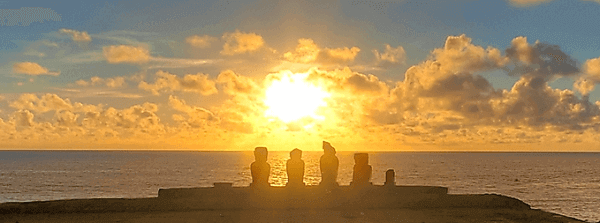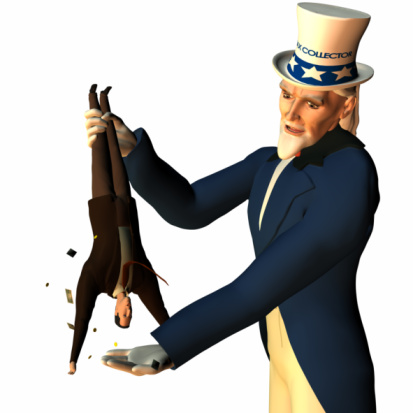Quotes from Financial Giants Applied to Offshore Investment
These are my favorite quotes from the giants of finance that I apply to my offshore investment and my offshore business. If you want to manage your offshore investment portfolio, follow this advice to diversification and wealth.
The two quotes that I follow in every offshore investment that I make, and in my business (which is based in Panama), is a combo from Warren Buffet and Peter Lynch. Mr. Buffet says to “only invest in what you know and at the right price,” while Mr. Lynch says, “Buy what you know!”
I believe firmly one should only make investments, be they onshore or offshore, that you fully understand. For this reason, much of my offshore investment is putting capital back in to my own business. It also means that I thoroughly vet all rental real estate properties I purchase, and focus on hard assets, such as gold and wood.
To achieve this goal, I have taken control over my retirement plan. Only I have the time, motivation, and am willing to spend the money necessary to vet each and every offshore investment.
If I left my retirement accounts to a U.S. advisor or custodian, he is not going to spend the time necessary to research, visit, and analyze a condo in Medellin. He doesn’t make that kind of money from my accounts. On the other hand, I expect a significant return from each and every offshore investment, so I am willing to spend my time, effort, and money to guarantee a high return to my IRA.
Next is Thomas Rowe Price, Jr., founder of T. Rowe Price & Assoc., probably not someone you’d expect me to be citing, too. Premier makes quite a bit out of taking your retirement accounts and investments away from these big firms and under your control. Well, my favorite quote attributed to Mr. Price is, “Most big fortunes result from investing in a growing business and staying with it through thick and thin.”
I interpret (or spin) this to mean we should make each offshore investment in a growing, tax efficient business and, if you own or control that business, even better. Only you know for certain how your business is doing and are willing to fight through any adversity to keep it going. Make your offshore investment count – invest in your business or start a joint venture offshore with a partner committed to these same principles.
Next, I’m a fan of Carl Icahn, who once said, “Complain loudly to force improvement.” As you may know, Mr. Icahn rose to prominence as a corporate raider in the 1980s, and is now considered an activist investor… a term I guess means he or the industry has softened its approach.
In either case, Mr. Icahn invests in under-performing companies, complains loudly, and turns them around. One way to apply this to an offshore investment or an offshore business is to bring American efficiency and work ethic to Latin America. By pushing your employees, and complaining loudly about inefficiency, you are sure to increase revenues.
Also, because your investment is in a region with lower wages on average, you are able to compensate those who live up to your expectations. You may have a tough time implementing this in some countries, but others, like Panama, already know what to expect and are more willing to adapt.
Now for two classics. First, Nathan Mayer Rothchild (1777 – 1836) said that “information is money.” This is the most important quote in this post for the American making an offshore investment in Latin America. The bottom line is that there are two prices for many offshore investments, the local price and the gringo price. The only way to avoid the gringo price is through information.
Keeping in mind that there is no MLS system for real estate in South and Central America, you must come about information the old fashioned way, just like Nathan Rothchild. You need to build relationships, do your due diligence, speak to as many locals and real estate people as possible, and build a reliable spreadsheet of prices in each region in the city.
For example, you should be aware that name brand real estate agents in Panama often buy and flip property to an American to increase their profits. I have also seen them push up the price and take a kickback from the seller. Only through research and local knowledge will you be able to ferret out the best deals.
These backroom deals are common knowledge among Panamanians. I have rented many apartments, and I am always asked if I want to offer the unit at the local rate or the gringo rate… which means I will need to wait for a sucker to come along, but will receive a higher monthly fee… often 50% or more than the local rate.
And this goes back to my first point of invest in what you know and at the right price. Only someone willing to do the research in order to understand the market and the culture will have the information necessary to make an offshore investment. There is no way your U.S. IRS custodian will be willing to put in this kind of time. Information will ensure you get the best deals and can make a significant difference offshore. But, you must be willing to work for and spend to obtain that information.
Second is Roger W. Babson (1875 – 1967), who said “diversification, caution and no margin debt are the keys to investing.” Today, the only way to truly diversify is to go offshore. If you diversify out of the United States, and out of the U.S. dollar, you are protecting against country and currency risk, which many believe are quite significant at this time in our history. I also believe this should lead you to physical assets, such as gold and wood on the conservative side of your ledger and real estate with significant upside on the aggressive side of your offshore investment portfolio.
I personally don’t recommend leverage or margin debt in your retirement account. I believe the only place for leverage in your offshore investment portfolio is in income producing real estate.
Margin interest increases your gains, but is also increasing your risks. This is especially true with margin debt on currency trading, which can reach 100 times. Very few should be taking these kinds of risks with their retirement money.
Of course, many don’t agree with me or Mr. Babson. If you use margin debt in your retirement account onshore, then you must pay 35% tax on the income derived from this leverage, called Unrelated Business Income Tax or UBIT. This UBIT is eliminated by taking your IRA offshore. So, moving your retirement account offshore, and adding a UBIT Blocker Corporation to your offshore company structure, is the best way to go against the traditional wisdom of not using leverage in a retirement account.
The best quote and argument for taking control of your retirement account also comes from Mr. Babson. He said, “Tell your dollars where to go rather than asking them where they went.”
By taking control of your retirement account, and directing those dollars to well researched higher yields and/or more diverse assets classes, you will be buying what you know and securing your retirement.
I believe William F. Sharpe sums up my feelings on offshore investments quite succinctly. “Understand your risks!”
If you buy what you know, and have sufficient information to understand the market and, maybe more importantly, the culture in to which you are investing, then you will understand the risks of a particular offshore investment. When you know your risks, you can take steps to mitigate those risks.
I will close with a quote from Alexander Hamilton (1755 – 1804), who said “sovereign strength begets financial stability.” A basic reading of this statement will lead you to invest in countries which are stable and encourage you to do your research on the currency and balance sheet of any nation you are thinking of making an investment in.
On a deeper level, it might cause some to look back at the United States and see a country that has lost much of its sovereign strength because of its ever weakening financial position. When you consider that holding accounts in U.S. dollars is a form of investing in the U.S., you might decide to modify your portfolio mix.
I will leave it here because I prefer to focus on the facts of offshore investment and doing business abroad. I try, and sometimes fail, to keep politics out of it.
As a parting shot, here is one more quote from Mr. Hamilton: “A nation which can prefer disgrace to danger is prepared for a master, and deserves one.”










